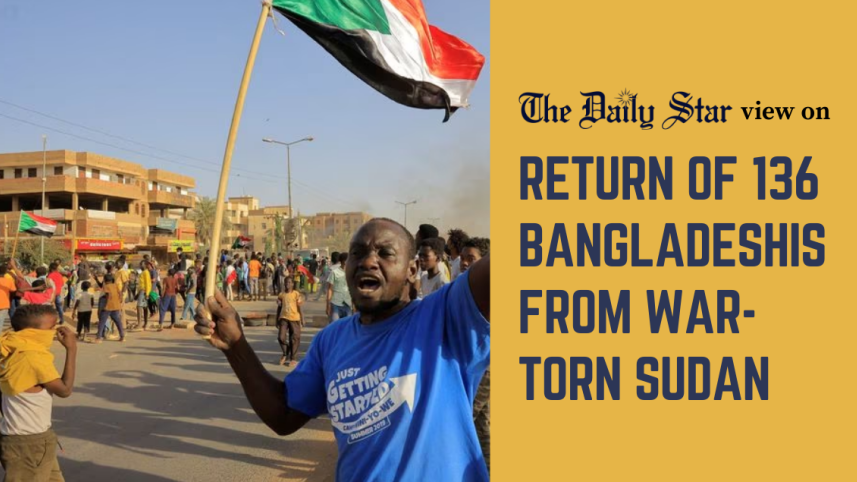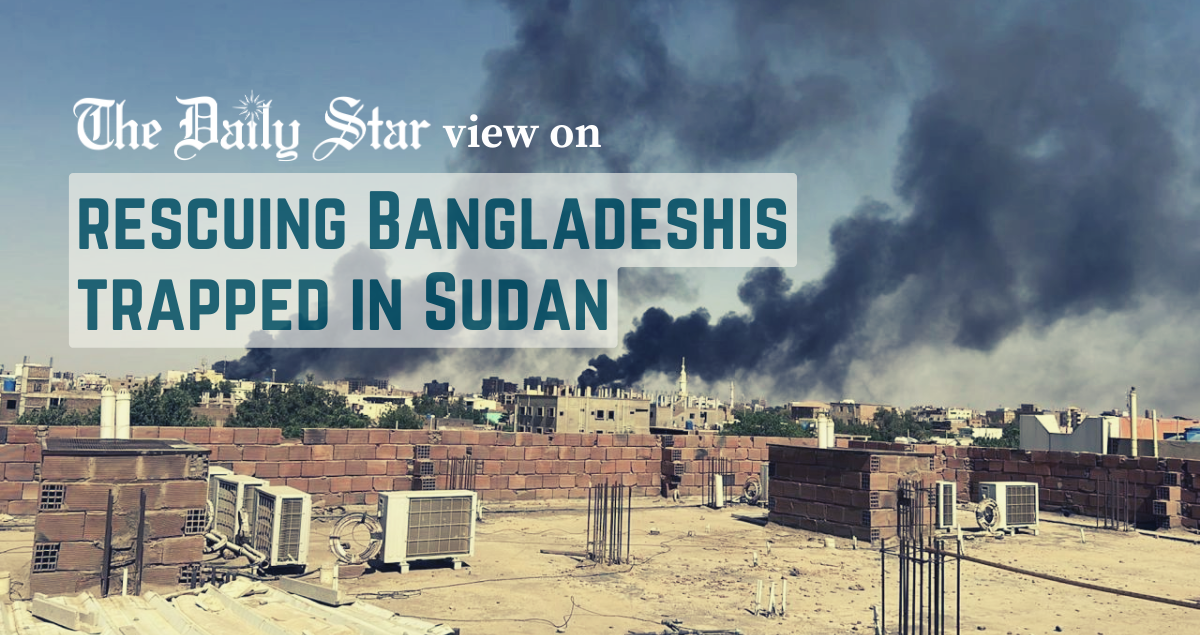Evacuate all Bangladeshis still stuck in Sudan

The experiences of those who have been evacuated from conflict-torn Sudan to Bangladesh are truly harrowing. But we are pleased that they are now safely back in Bangladesh, having suffered many challenges and uncertainties along the way including a constant threat of harm, shrinking access to life-saving essentials and not knowing whether they would ever make it back to their country alive. So far, 136 out of the around 1,500 Bangladeshis who were living in Sudan when the fighting began have been successfully brought back. Out of the 1,500, some 700 have already registered to return to Bangladesh.
On May 4, it was reported that some 600 Bangladeshis stranded in Sudan had safely reached Port Sudan from Khartoum, the capital of the country, and were waiting to reach Jeddah by ship. From the accounts of those who have returned, it can be ascertained that the violence and chaos that is happening in Sudan is still out of control. Right now, people there have zero security for their life and property. Many of the returnees testified that they had found themselves right in the middle of firing between the rival factions of the Sudan military government. Some of them had to leave their homes empty-handed – in some cases, after their belongings had been looted by men involved in fighting – or leave their loved ones behind.
The trauma they experienced is sure to have lasting effects. Financially, many of these returnees have been ruined as a result of this sudden catastrophe. As we understand from media reports, different ministries of the government and the International Organization for Migration (IOM) are set to provide reintegration support to the returnees. Besides financial and other material support, it is essential that they are also provided with psychological support to help them readjust to normal life, after having gone through the trauma of war.
While providing these facilities to the returnees, the government needs to work steadfastly to pull out the rest of the Bangladeshis still stuck in Sudan. Even though we must congratulate the government for working hard to try and get all Bangladeshis there to safety, relative to some other countries, its response has been somewhat slow. Many of the Bangladeshis still stuck there may not have much time left before they are put in harm's way, unless they are urgently rescued.
Keeping that in mind, the government needs to have its missions in Sudan and close by working double time to arrange for their safe exits. It also needs to coordinate with other countries of the region – particularly Saudi Arabia, which has been extremely helpful in the rescue of the 136 Bangladeshis – to figure out the logistics of how they can be best evacuated safely. In the meantime, the international community should come together to negotiate a permanent ceasefire in Sudan to prevent more unnecessary suffering for its people and for the citizens of other countries still stuck there.



 For all latest news, follow The Daily Star's Google News channel.
For all latest news, follow The Daily Star's Google News channel. 
Comments